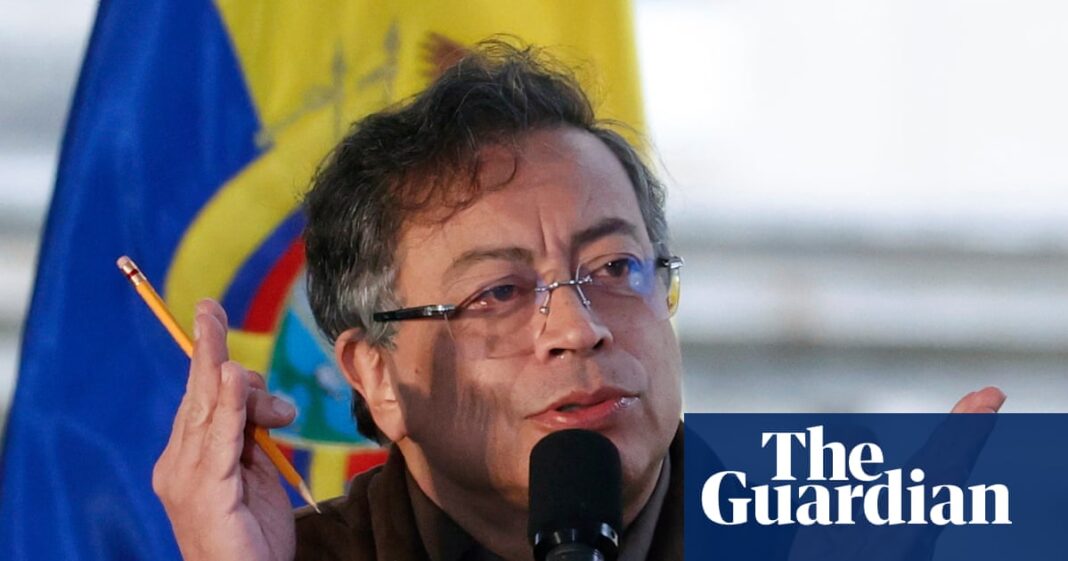Trump’s Accusations Against Colombia’s President Petro: A Deepening Diplomatic Rift
On a recent Sunday, former President Donald Trump took to Truth Social to make some explosive accusations against Colombia’s President, Gustavo Petro, labeling him an “illegal drug dealer.” This incendiary claim followed ongoing tensions between the United States and Colombia, a historically close ally, particularly in the fight against drug trafficking.
Trump’s Criticism of Petro’s Leadership
In his social media post, Trump accused Petro of failing to tackle the rampant production of illegal drugs, asserting that despite significant financial support from the U.S., the Colombian leader was doing “nothing to stop it.” He called Petro a “low-rated and very unpopular leader,” indicating that the former president believes Petro’s administration is contributing to the challenges the U.S. faces in controlling drug trade.
The rhetoric escalated as Trump threatened to cut U.S. funding to Colombia, underscoring the potential consequences Petro could face if he doesn’t address the issue urgently. “Better close up these killing fields immediately,” Trump warned, “or the United States will close them up for him, and it won’t be done nicely.”
The Context of Tensions
These remarks from Trump came soon after Petro accused the U.S. of committing “murder” through a military strike targeting an alleged drug boat in Colombian waters. Petro’s outcry stemmed from the incident on September 15, where a Colombian fisherman, Alejandro Carranza, was killed when U.S. forces reportedly opened fire on his boat, which he claimed was adrift with a distress signal raised due to engine failure.
This particular incident has intensified scrutiny over U.S. military operations in the region, raising questions about the legality and justification of such actions.
Ongoing Military Strikes and Their Implications
The U.S. military has escalated operations in the Caribbean, conducting multiple strikes that they claim target drug traffickers. However, this strategy has faced criticism from various quarters, including legal experts who question the adherence of these actions to international laws of warfare. At least 29 casualties have been reported from these operations, exacerbating concerns about innocent bystanders and the ethical implications of collateral damage.
In the wake of Trump’s comments, the U.S. administration recently facilitated the repatriation of two survivors from the latest military strike, a move viewed as an attempt to skirt complex legal challenges associated with detaining suspected drug traffickers. Trump publicly defended the strikes, framing them as necessary actions in the ongoing war against drugs. He described his satisfaction in destroying a “drug-carrying submarine,” emphasizing the ongoing efforts to combat narcotrafficking routes.
Funding and Aid to Colombia
Colombia has historically been the largest recipient of U.S. aid in Latin America, designated as a major non-NATO ally by former President Joe Biden in 2022. However, recent tensions have prompted discussions within the U.S. Congress regarding future funding, with proposed allocations of $377.5 million in foreign assistance for 2024 facing limitations due to concerns about Petro’s policies.
In September, the Trump administration issued a formal statement asserting that Colombia was no longer cooperating effectively in the drug war, marking a significant shift after decades of collaboration. This strained dynamic was further highlighted when Petro’s visa was revoked during his attendance at the UN General Assembly, following his controversial remarks encouraging U.S. soldiers to resist Trump’s directives.
Petro’s Response
In the face of these accusations and potential funding cuts, President Petro responded through social media, expressing respect for the U.S. and its people but differentiating between his stance and Trump’s actions. “I respect the history, culture, and people of the USA. They are not my enemies, nor do I feel them as such,” he stated, emphasizing that the conflict is rooted in personal animosity rather than national interests.
Petro’s comments indicate a desire to maintain diplomatic relations with the United States while confronting the challenges posed by Trump’s administration and its rhetoric. As tensions rise, the dialogue between Colombia and the U.S. is at a critical juncture, necessitating careful navigation to address complex issues surrounding drug trafficking, military actions, and international diplomacy.



